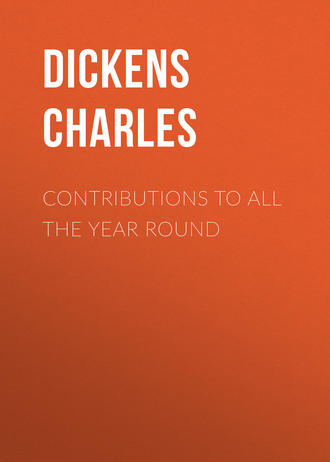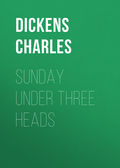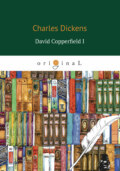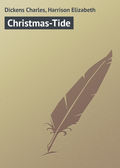
Чарльз Диккенс
Contributions to All The Year Round
Sir, look again at Literature. The Bleater's London Correspondent is not merely acquainted with all the eminent writers, but is in possession of the secrets of their souls. He is versed in their hidden meanings and references, sees their manuscripts before publication, and knows the subjects and titles of their books when they are not begun. How dare those writers turn upon the eminent man and depart from every intention they have confided to him? How do they justify themselves in entirely altering their manuscripts, changing their titles, and abandoning their subjects? Will they deny, in the face of Tattlesnivel, that they do so? If they have such hardihood, let the file of the Bleater strike them dumb. By their fruits they shall be known. Let their works be compared with the anticipatory letters of the Bleater's London Correspondent, and their falsehood and deceit will become manifest as the sun; it will be seen that they do nothing which they stand pledged to the Bleater's London Correspondent to do; it will be seen that they are among the blackest parties in this black and base conspiracy. This will become apparent, sir, not only as to their public proceedings but as to their private affairs. The outraged Tattlesnivellian who now drags this infamous combination into the face of day, charges those literary persons with making away with their property, imposing on the Income Tax Commissioners, keeping false books, and entering into sham contracts. He accuses them on the unimpeachable faith of the London Correspondent of the Tattlesnivel Bleater. With whose evidence they will find it impossible to reconcile their own account of any transaction of their lives.
The national character is degenerating under the influence of the ramifications of this tremendous conspiracy. Forgery is committed, constantly. A person of note – any sort of person of note – dies. The Bleater's London Correspondent knows what his circumstances are, what his savings are (if any), who his creditors are, all about his children and relations, and (in general, before his body is cold) describes his will. Is that will ever proved? Never! Some other will is substituted; the real instrument, destroyed. And this (as has been before observed), is England.
Who are the workmen and artificers, enrolled upon the books of this treacherous league? From what funds are they paid, and with what ceremonies are they sworn to secrecy? Are there none such? Observe what follows. A little time ago the Bleater's London Correspondent had this passage: "Boddleboy is pianoforte playing at St. Januarius's Gallery, with pretty tolerable success! He clears three hundred pounds per night. Not bad this!!" The builder of St. Januarius's Gallery (plunged to the throat in the conspiracy) met with this piece of news, and observed, with characteristic coarseness, "that the Bleater's London Correspondent was a Blind Ass". Being pressed by a man of spirit to give his reasons for this extraordinary statement, he declared that the Gallery, crammed to suffocation, would not hold two hundred pounds, and that its expenses were, probably, at least half what it did hold. The man of spirit (himself a Tattlesnivellian) had the Gallery measured within a week from that hour, and it would not hold two hundred pounds! Now, can the poorest capacity doubt that it had been altered in the meantime?
And so the conspiracy extends, through every grade of society, down to the condemned criminal in prison, the hangman, and the Ordinary. Every famous murderer within the last ten years has desecrated his last moments by falsifying his confidences imparted specially to the London Correspondent of the Tattlesnivel Bleater; on every such occasion, Mr. Calcraft has followed the degrading example; and the reverend Ordinary, forgetful of his cloth, and mindful only (it would seem, alas!) of the conspiracy, has committed himself to some account or other of the criminal's demeanour and conversation, which has been diametrically opposed to the exclusive information of the London Correspondent of the Bleater. And this (as has been before observed) is Merry England!
A man of true genius, however, is not easily defeated. The Bleater's London Correspondent, probably beginning to suspect the existence of a plot against him, has recently fallen on a new style, which, as being very difficult to countermine, may necessitate the organisation of a new conspiracy. One of his masterly letters, lately, disclosed the adoption of this style – which was remarked with profound sensation throughout Tattlesnivel – in the following passage: "Mentioning literary small talk, I may tell you that some new and extraordinary rumours are afloat concerning the conversations I have previously mentioned, alleged to have taken place in the first floor front (situated over the street door), of Mr. X. Ameter (the poet so well known to your readers), in which, X. Ameter's great uncle, his second son, his butcher, and a corpulent gentleman with one eye universally respected at Kensington, are said not to have been on the most friendly footing; I forbear, however, to pursue the subject further, this week, my informant not being able to supply me with exact particulars."
But, enough, sir. The inhabitant of Tattlesnivel who has taken pen in hand to expose this odious association of unprincipled men against a shining (local) character, turns from it with disgust and contempt. Let him in few words strip the remaining flimsy covering from the nude object of the conspirators, and his loathsome task is ended.
Sir, that object, he contends, is evidently twofold. First, to exhibit the London Correspondent of the Tattlesnivel Bleater in the light of a mischievous Blockhead who, by hiring himself out to tell what he cannot possibly know, is as great a public nuisance as a Blockhead in a corner can be. Second, to suggest to the men of Tattlesnivel that it does not improve their town to have so much Dry Rubbish shot there.
Now, sir, on both these points Tattlesnivel demands in accents of Thunder, Where is the Attorney General? Why doesn't the Times take it up? (Is the latter in the conspiracy? It never adopts his views, or quotes him, and incessantly contradicts him.) Tattlesnivel, sir, remembering that our forefathers contended with the Norman at Hastings, and bled at a variety of other places that will readily occur to you, demands that its birthright shall not be bartered away for a mess of pottage. Have a care, sir, have a care! Or Tattlesnivel (its idle Rifles piled in its scouted streets) may be seen ere long, advancing with its Bleater to the foot of the Throne, and demanding redress for this conspiracy, from the orbed and sceptred hands of Majesty itself!
THE YOUNG MAN FROM THE COUNTRY
A song of the hour, now in course of being sung and whistled in every street, the other day reminded the writer of these words – as he chanced to pass a fag-end of the song for the twentieth time in a short London walk – that twenty years ago, a little book on the United States, entitled American Notes, was published by "a Young Man from the Country", who had just seen and left it.
This Young Man from the Country fell into a deal of trouble, by reason of having taken the liberty to believe that he perceived in America downward popular tendencies for which his young enthusiasm had been anything but prepared. It was in vain for the Young Man to offer in extenuation of his belief that no stranger could have set foot on those shores with a feeling of livelier interest in the country, and stronger faith in it, than he. Those were the days when the Tories had made their Ashburton Treaty, and when Whigs and Radicals must have no theory disturbed. All three parties waylaid and mauled the Young Man from the Country, and showed that he knew nothing about the country.
As the Young Man from the Country had observed in the Preface to his little book, that he "could bide his time", he took all this in silent part for eight years. Publishing then, a cheap edition of his book, he made no stronger protest than the following:
"My readers have opportunities of judging for themselves whether the influences and tendencies which I distrusted in America, have any existence but in my imagination. They can examine for themselves whether there has been anything in the public career of that country during these past eight years, or whether there is anything in its present position, at home or abroad, which suggests that those influences and tendencies really do exist. As they find the fact, they will judge me. If they discern any evidences of wrong-going, in any direction that I have indicated, they will acknowledge that I had reason in what I wrote. If they discern no such thing, they will consider me altogether mistaken. I have nothing to defend, or to explain away. The truth is the truth; and neither childish absurdities, nor unscrupulous contradictions, can make it otherwise. The earth would still move round the sun, though the whole Catholic Church said No."
Twelve more years having since passed away, it may now, at last, be simply just towards the Young Man from the Country, to compare what he originally wrote, with recent events and their plain motive powers. Treating of the House of Representatives at Washington, he wrote thus:
"Did I recognise in this assembly, a body of men, who, applying themselves in a new world to correct some of the falsehoods and vices of the old, purified the avenues to Public Life, paved the dirty ways to Place and Power, debated and made laws for the Common Good, and had no party but their Country?
"I saw in them, the wheels that move the meanest perversion of virtuous Political Machinery that the worst tools ever wrought. Despicable trickery at elections; under-handed tamperings with public officers; cowardly attacks upon opponents, with scurrilous newspapers for shields, and hired pens for daggers; shameful trucklings to mercenary knaves, whose claim to be considered, is, that every day and week they sow new crops of ruin with their venal types, which are the dragon's teeth of yore, in everything but sharpness; aidings and abettings of every bad inclination in the popular mind, and artful suppressions of all its good influences: such things as these, and in a word, Dishonest Faction in its most depraved and most unblushing form, stared out from every corner of the crowded hall.
"Did I see among them, the intelligence and refinement: the true, honest, patriotic heart of America? Here and there, were drops of its blood and life, but they scarcely coloured the stream of desperate adventurers which sets that way for profit and for pay. It is the game of these men, and of their profligate organs, to make the strife of politics so fierce and brutal, and so destructive of all self-respect in worthy men, that sensitive and delicate-minded persons shall be kept aloof, and they, and such as they, be left to battle out their selfish views unchecked. And thus this lowest of all scrambling fights goes on, and they who in other countries would, from their intelligence and station, most aspire to make the laws, do here recoil the farthest from that degradation.
"That there are, among the representatives of the people in both Houses, and among all parties, some men of high character and great abilities, I need not say. The foremost among those politicians who are known in Europe, have been already described, and I see no reason to depart from the rule I have laid down for my guidance, of abstaining from all mention of individuals. It will be sufficient to add, that to the most favourable accounts that have been written of them, I fully and most heartily subscribe; and that personal intercourse and free communication have bred within me, not the result predicted in the very doubtful proverb, but increased admiration and respect."
Towards the end of his book, the Young Man from the Country thus expressed himself concerning its people:
"They are, by nature, frank, brave, cordial, hospitable, and affectionate. Cultivation and refinement seem but to enhance their warmth of heart and ardent enthusiasm; and it is the possession of these latter qualities in a most remarkable degree, which renders an educated American one of the most endearing and most generous of friends. I never was so won upon, as by this class; never yielded up my full confidence and esteem so readily and pleasurably, as to them; never can make again, in half a year, so many friends for whom I seem to entertain the regard of half a life.
"These qualities are natural, I implicitly believe, to the whole people. That they are, however, sadly sapped and blighted in their growth among the mass; and that there are influences at work which endanger them still more, and give but little present promise of their healthy restoration; is a truth that ought to be told.
"It is an essential part of every national character to pique itself mightily upon its faults, and to deduce tokens of its virtue or its wisdom from their very exaggeration. One great blemish in the popular mind of America, and the prolific parent of an innumerable brood of evils, is Universal Distrust. Yet the American citizen plumes himself upon this spirit, even when he is sufficiently dispassionate to perceive the ruin it works; and will often adduce it, in spite of his own reason, as an instance of the great sagacity and acuteness of the people, and their superior shrewdness and independence.
"'You carry,' says the stranger, 'this jealousy and distrust into every transaction of public life. By repelling worthy men from your legislative assemblies, it has bred up a class of candidates for the suffrage, who, in their every act, disgrace your Institutions and your people's choice. It has rendered you so fickle, and so given to change, that your inconstancy has passed into a proverb; for you no sooner set up an idol firmly, than you are sure to pull it down and dash it into fragments: and this, because directly you reward a benefactor, or a public-servant, you distrust him, merely because he IS rewarded; and immediately apply yourselves to find out, either that you have been too bountiful in your acknowledgments, or he remiss in his deserts. Any man who attains a high place among you, from the President downwards, may date his downfall from that moment; for any printed lie that any notorious villain pens, although it militate directly against the character and conduct of a life, appeals at once to your distrust, and is believed. You will strain at a gnat in the way of trustfulness and confidence, however fairly won and well deserved; but you will swallow a whole caravan of camels, if they be laden with unworthy doubts and mean suspicions. Is this well, think you, or likely to elevate the character of the governors or the governed, among you?'
"The answer is invariably the same: 'There's freedom of opinion here, you know. Every man thinks for himself, and we are not to be easily overreached. That's how our people come to be suspicious.'
"Another prominent feature is the love of 'smart' dealing: which gilds over many a swindle and gross breach of trust; many a defalcation, public and private; and enables many a knave to hold his head up with the best, who well deserves a halter: though it has not been without its retributive operation, for this smartness has done more in a few years to impair the public credit, and to cripple the public resources, than dull honesty, however rash, could have effected in a century. The merits of a broken speculation, or a bankruptcy, or of a successful scoundrel, are not gauged by its or his observance of the golden rule, 'Do as you would be done by', but are considered with reference to their smartness. I recollect, on both occasions of our passing that ill-fated Cairo on the Mississippi, remarking on the bad effects such gross deceits must have when they exploded, in generating a want of confidence abroad, and discouraging foreign investment: but I was given to understand that this was a very smart scheme by which a deal of money had been made: and that its smartest feature was, that they forgot these things abroad, in a very short time, and speculated again, as freely as ever. The following dialogue I have held a hundred times: 'Is it not a very disgraceful circumstance that such a man as So-and-so should be acquiring a large property by the most infamous and odious means, and notwithstanding all the crimes of which he has been guilty, should be tolerated and abetted by your citizens? He is a public nuisance, is he not?' 'Yes, sir.' 'A convicted liar?' 'Yes, sir.' 'He has been kicked, and cuffed, and caned?' 'Yes, sir.' 'And he is utterly dishonourable, debased, and profligate?' 'Yes, sir.' 'In the name of wonder, then, what is his merit?' 'Well, sir, he is a smart man.'
"But the foul growth of America has a more tangled root than this; and it strikes its fibres, deep in its licentious Press.
"Schools may he erected, East, West, North, and South; pupils be taught, and masters reared, by scores upon scores of thousands; colleges may thrive, churches may be crammed, temperance may be diffused, and advancing knowledge in all other forms walk through the land with giant strides; but while the newspaper press of America is in, or near, its present abject state, high moral improvement in that country is hopeless. Year by year, it must and will go back; year by year, the tone of public opinion must sink lower down; year by year, the Congress and the Senate must become of less account before all decent men; and year by year, the memory of the Great Fathers of the Revolution must be outraged more and more, in the bad life of their degenerate child.
"Among the herd of journals which are published in the States, there are some, the reader scarcely need be told, of character and credit. From personal intercourse with accomplished gentlemen connected with publications of this class, I have derived both pleasure and profit. But the name of these is Few, and of the others Legion; and the influence of the good, is powerless to counteract the moral poison of the bad.
"Among the gentry of America; among the well-informed and moderate; in the learned professions; at the bar and on the bench; there is, as there can be, but one opinion, in reference to the vicious character of these infamous journals. It is sometimes contended – I will not say strangely, for it is natural to seek excuses for such a disgrace – that their influence is not so great as a visitor would suppose. I must be pardoned for saying that there is no warrant for this plea, and that every fact and circumstance tends directly to the opposite conclusion.
"When any man, of any grade of desert in intellect or character, can climb to any public distinction, no matter what, in America, without first grovelling down upon the earth, and bending the knee before this monster of depravity; when any private excellence is safe from its attacks; when any social confidence is left unbroken by it; or any tie of social decency and honour is held in the least regard; when any man in that Free Country has freedom of opinion, and presumes to think for himself, and speak for himself, without humble reference to a censorship which, for its rampant ignorance and base dishonesty, he utterly loaths and despises in his heart; when those who most acutely feel its infamy and the reproach it casts upon the nation, and who most denounce it to each other, dare to set their heels upon, and crush it openly, in the sight of all men: then, I will believe that its influence is lessening, and men are returning to their manly senses. But while that Press has its evil eye in every house, and its black hand in every appointment in the state, from a president to a postman; while, with ribald slander for its only stock in trade, it is the standard literature of an enormous class, who must find their reading in a newspaper, or they will not read at all; so long must its odium be upon the country's head, and so long must the evil it works, be plainly visible in the Republic."
The foregoing was written in the year eighteen hundred and forty- two. It rests with the reader to decide whether it has received any confirmation, or assumed any colour of truth, in or about the year eighteen hundred and sixty-two.






